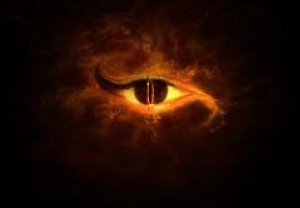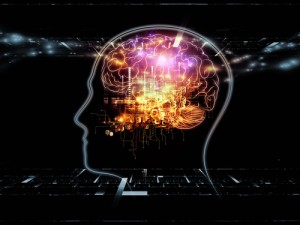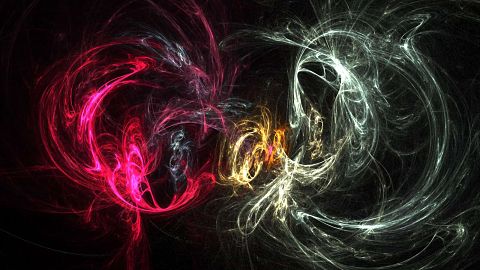The great contradiction of the human condition (the emotional realization of which is the source of enduring forgiveness) is that we can all be either vessels or conduits, and sometimes both by turns.
 Conduits are much more common; in fact, they’re overwhelmingly common. A lack of self-knowing, plus a core belief in ‘my individuality,’ make people pipes through which collective darkness flows.
Conduits are much more common; in fact, they’re overwhelmingly common. A lack of self-knowing, plus a core belief in ‘my individuality,’ make people pipes through which collective darkness flows.
The movie that gives the best and most frightening portrayal of this phenomenon is “Fallen,” starring Denzel Washington. Though it laced with Christian overtones and supernatural undertones, the film fairly accurately represents the way darkness is subconsciously conveyed through unaware people.
Evil exists, but it’s not a supernatural phenomenon. We understand next to nothing about its origins and operations. Evil is a metaphysical reality that has yet to be physically understood.
To my mind, the word ‘metaphysical’ simply means things that up to now aren’t understood physically. And by physically, I’m referring not just to matter, but energy, multi-dimensionality, the origin of the universe, as well as the man-made reality of evil.
Again, there is no supernatural realm separate from the world of the senses and observation. Not that everything can be scientifically diced and dissected. But the basic approach of science—skepticism, questioning, observation, experimentation and replicability—apply to the spiritual and philosophical dimensions as well.
In the movie “Fallen,” an intentional malevolence passes through people like an electric current, requiring only  a touch from one person to the next. No one can resist evil’s electric current, though inexplicably, it targets and attacks some people rather than others.
a touch from one person to the next. No one can resist evil’s electric current, though inexplicably, it targets and attacks some people rather than others.
But apart from the obvious contradictions, and the supernatural mumbo jumbo, the movie gets the existence and transmission of evil metaphorically right in my view. That’s what makes it scary, both at the movies, and in real life.
A dead culture, such as we have in America now, makes a perfect medium for collective darkness. And when the vast majority of people in that culture adapt to it by becoming inwardly dead (or to use the euphemism, ‘numb’), then there is nothing to stop the growth and spread of evil.
Chris Hedges, in his book, “Empire of Illusion, the End of Literacy and the Triumph of Spectacle,” touches on this intractable issue when he says: “Radical evil is possible only with the collaboration of a timid, cowed, and confused population, a system of propaganda and mass media that offers little more than spectacle and entertainment, and an educational system that does not transmit transcendent values or nurture the capacity for individual conscience.”
That’s clearly true at one level, and speaks to the medium of the culture. But the roots, goals and operation of evil in consciousness lie much deeper.
During especially dark times like these, the paranoia that schizophrenics feel may not originate solely within their disturbed imaginations, though it is certainly heightened and distorted by their disrupted neuronal circuitry. Indeed, perhaps some of the chaotic and disordered ‘voices’ which schizophrenics hear (no, I don’t hear them myself) have some basis in a reality that emanates from beyond their own heads. But sorting out what is real and what is imagined is hard enough for fully rational people to do.
There’s no doubt that schizophrenics’ brains have gone haywire, but the convenient and comfortable idea that everything they perceive originates solely from their individual brains is as misguided as the medieval notion that demons live in swamps and forests. Human consciousness is a single net, not 7.2 billion separate, individualized nodes.
 In short, the mental illness explanation of the radical evil rampant in America and the world today is wholly inadequate, and quite dangerous. It not only stigmatizes mentally ill people, but also lends itself to labeling as mentally ill anyone who challenges the dominant paradigm.
In short, the mental illness explanation of the radical evil rampant in America and the world today is wholly inadequate, and quite dangerous. It not only stigmatizes mentally ill people, but also lends itself to labeling as mentally ill anyone who challenges the dominant paradigm.
So what is a ‘vessel?’ As I see it, the awakened, or at minimum awakening human being is the only vessel on this planet into which the immanent sacredness of the cosmos can flow. But being a vessel for insight is not the opposite of being a conduit. Good and evil aren’t two sides of the same coin.
This has nothing to do with the whole channeling thing, which is dubious at best. Serious people don’t indulge in channeling, not only because the human mind is so prone to self-deception, but also because we can never be sure where the ‘entities’ one is bringing through are coming from. Best to stay away from channeling and channelers.
Can the human being actually contact a nameless, formless energy beyond the mind and brain? Yes, although the complete stillness of the movement of conditioning, of consciousness as we know it, is essential.
Short of enlightenment however, one can never be entirely sure, since one can be a vessel of wholeness and holiness one day, and a conduit of collective darkness the next. Personally, I’ve stood on some of the highest and most sublime peaks, and wallowed in some the filthiest and most fetid swamps, inwardly speaking.
Generally speaking, conduits are people who refuse to see the darkness in themselves, and therefore inevitably and unconsciously act out of it, and thereby act as transmitters of collective darkness. It’s difficult not to react when someone continually acts out, and refuses to see the harm he or she is doing. But reacting with anger sucks one into the same mode.
In short, the way to prevail over evil is to meet darkness first and last within oneself, and learn from it continuously. Evil has nothing to attach to and exploit within one if one faces, learns and doesn’t react from one’s own darkness.
In this way we can turn the tables on darkness. Indeed, darkness can then serve human transmutation by prompting learning and growth in the human being.
One cannot look for the inseparable and unnamable otherness beyond the darkness of human consciousness, only by going through it. But infinite intelligence is there, patiently waiting and available to anyone who does the spadework of self-knowing every day.
Martin LeFevre

